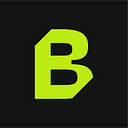It’s February 2022, and NFTs remain one of the hottest topics in the crypto world due to their growing popularity and applications in different sectors. Today, we’ll explore how to find and decide the best NFT projects for your portfolio.
If you’re a first-time Breacher and want the basics of NFTs, we’ve got you covered in our previous newsletter.
Identify your goal
Before buying or minting an NFT, think about why you want to own one. Here are some factors to consider.
- To test the waters, consider buying NFTs on non-Ethereum blockchains like Solana and Binance Smart Chain. They have low transaction fees, and you won’t need to spend a lot of money to own an NFT.
- If you want projects with established communities, then the Ethereum blockchain is your best bet. Remember that NFTs are high-risk and most popular NFTs are expensive. Transaction costs are high on the Ethereum blockchain.
Find the ideal NFT project
The crypto world is filled with hundreds of NFT projects that can confuse newbies. Here are some ways to find exciting projects worth your money.
- Follow top NFT stakeholders: One of the best ways is to follow top NFT collectors. Twitter is an ideal place for finding these influencers since they trade large volumes of NFTs and are usually the first to find hot projects.
- Join NFT communities: You can join crypto communities focused on NFTs to get the latest information. One way to do this is to join the NFT subreddit and follow established NFT communities on Facebook and Twitter.
- Search for trending NFT projects: Hunting for NFT projects that are trending is a great option. You can use NFT marketplaces like OpenSea and Rarible to view the most popular NFT projects.
Do your research (DYOR)
Once you’ve found the ideal NFT project, it is essential to visit their website and community to understand the following:
Mission: You need to know what the project is trying to accomplish? Is it sustainable? Does it make any sense to you? If you have doubts, you should probably not invest in it.
Roadmap: It’s essential to know whether the project has a clear plan to deliver its mission. A roadmap provides a detailed plan, and it is a massive red flag for an NFT project not to have one.
Team: Who are those behind the project? Are they anonymous or known within the crypto community? Is there any proof of their previous work?
Community: How active is the community? Are the core team members in the community? Are community members excited about upcoming events?
Note: If someone you don’t know sends you a message on social media about an NFT project, ignore it. The person is most likely a scammer.
